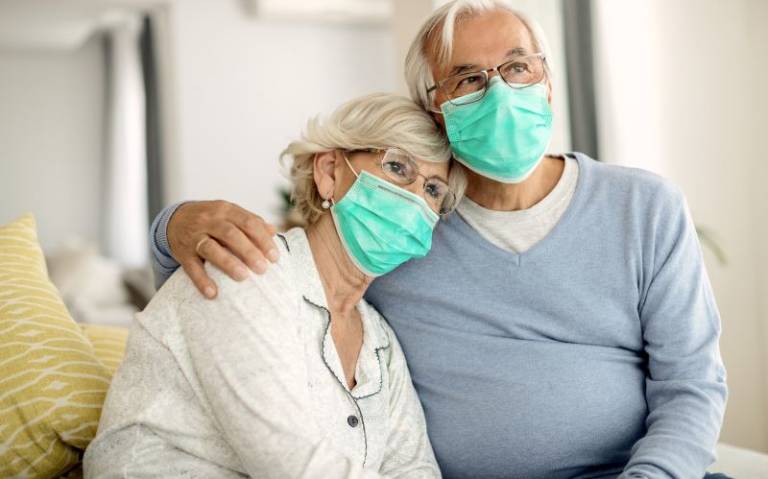Older people with partners are more likely to get vaccinated against Covid
5 April 2023
Having a partner or child leads older people to take greater precautions against Covid-19, including being vaccinated, finds a study involving a UCL researcher.

The research, published in PNAS and involving researchers at the University of Florence and the University of Vienna, analysed data from the Survey of Health, Ageing and Retirement in Europe – which interviewed 36,000 people aged 50 and over in 27 European countries between June and September 2020 and between June and August 2021.
The surveys asked respondents about their tendency to take precautions, such as washing hands, using sanitising gel, covering their mouth when coughing or sneezing and reducing the amount they went out to go shopping.
Participants were also asked about how willing they were to get vaccinated against Covid-19.
The results found that, among older people, having a partner or children was positively associated with a higher probability of adopting precautionary behaviours and getting vaccinated.
In particular, having a partner increased the probability of taking such decisions by about five percentage points.
Co-author, Dr Giorgio Di Gessa (UCL Institute of Epidemiology & Health), said: “In the context of a pandemic, partners and children can provide assistance and useful information to understand the importance of precautionary behaviours and vaccination.
“A partner, in particular, can ensure consistent emotional and practical support.”
The results were not driven by whether or not older people were cohabiting with their partner or children. Likewise, they were not impacted by the age, gender or nationality of the participants.
Nevertheless, the results were in line with previous studies which have shown the positive impact of family on health behaviours such as avoidance of alcohol and cigarette consumption.
The researchers also found that having children was particularly important for limiting the amount of shopping done in person by older members of society. This means that they were able to avoid closed and crowded spaces, such as supermarkets, where the risk of infection is greater.
Dr Di Gessa said: “These are important findings that can be of use to those practitioners who want to encourage older people not only to protect themselves against Covid-19 but also against other illnesses where precautionary measures are necessary, such as the flu.”
Co-author, Dr Valeria Bordone (University of Vienna) said: “Although family contacts can be a source of contagion for Covid-19, our study shows that close family ties can also have a positive influence on adopting preventative measures.
“Special attention should be paid to kinless (especially unpartnered) older individuals when designing interventions and recommendations to encourage the uptake and adherence to public health measures for Covid-19 or in future pandemics.”
Links
- Research in PNAS
- Dr Giorgio Di Gessa's academic profile
- UCL Insitute of Epidemiology & Health
- UCL Population Health Sciences
Image
- Credit: Drazen Zigic on iStock
 Close
Close

